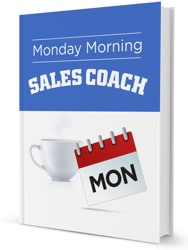Set the Trap… for Yourself!
Problem: Jack had been with the company for only two years, yet he was considered their most technically competent salesperson. He was the “go to guy” when the other salespeople needed someone to talk to about solutions, specifications, and competitive information. He was an expert when it came to product knowledge. Yet he had the worst closing rate and was the lowest paid salesperson.
Analysis: Jack had a bad habit and it was hurting his sales big time. He inevitably began to discuss solutions before he understood the prospect’s problems. His product knowledge and technical expertise was causing failure, not success. Despite the training he’d had over the years that taught him to diagnose the prospect’s problem before prescribing a solution, it seemed he just couldn’t help himself. He had to talk about his product. Deep down he believed that when they heard about all the features, advantages and benefits, they’d be compelled to buy. And he believed that dispensing his solutions and other free advice would endear him to his prospects. But it didn’t! He had to do something or he’d be looking for another job. What a waste of good product knowledge that would be!
Solution: Jack came to us for advice. He understood the problem, but seemed helpless to break the habit after several months of trying. We suggested that he “set a trap” for himself. We told him to tell every prospect during the meeting agreement, “You know, one of the biggest concerns I have is that I get so excited about our products that I often start selling them before I’ve taken the time to really understand what the customer needs. It’s not very fair to you, so if I start to do this today, will you please stop me? After all, I can’t be much help to you if I don’t understand your issues, can I?”
Now, not many prospects would actually stop him in the middle of his sales pitch, but it gave him an excuse to stop himself! He learned to say, “I’m sorry, there I go again. I told you I might do too much talking. Can we go back a step? I’d like to ask you a question about….” This “trap” helped him eliminate premature product knowledge dumping, got him to ask more questions, qualify better, and build better rapport because his prospects felt he really cared about their issue. Best of all, he closed more business.
What bad selling habits do you have? Do you forget to discuss money issues, fail to get to the real decision maker, never get referrals? How can you use a “trap” to help you?


